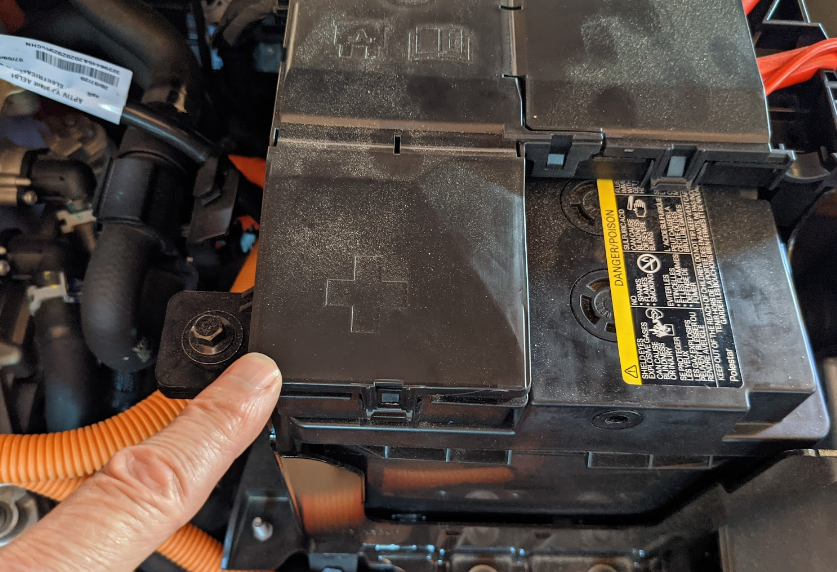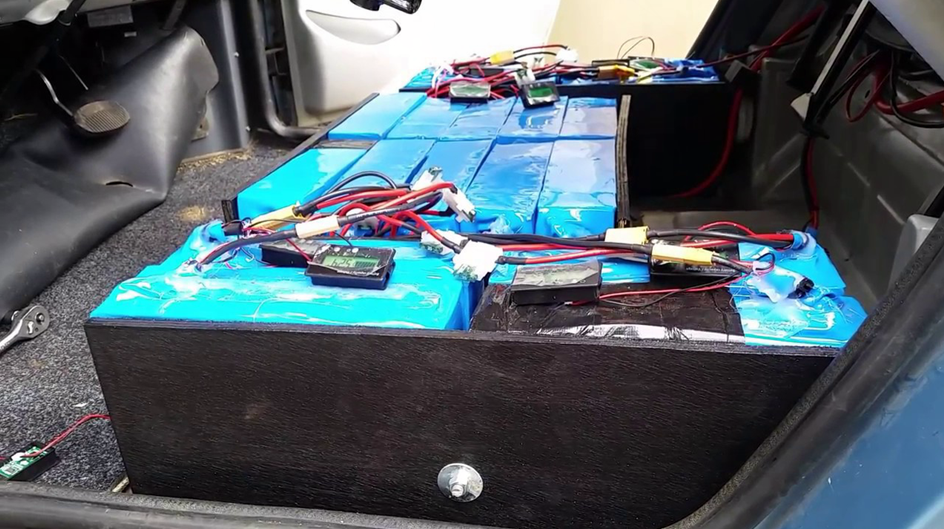Lithium Battery Production: A Symphony of Precision Engineering and Material Science
In the wave of energy technology, lithium batteries, with their high energy density, long cycle life and environmental protection characteristics, have become an important support for the development of modern science and technology. The production of lithium batteries is not only an in-depth dialogue between precision technology and material science, but also a vivid interpretation of the concept of green, efficient and sustainable development. This article will explore the secrets of lithium battery production in terms of material selection, production process, and quality control.

The Cornerstone of Materials Science
The performance of lithium batteries depends first and foremost on the selection of their constituent materials. Positive electrode materials, negative electrode materials, electrolytes and diaphragms are all carefully selected and strictly proportioned. In terms of positive electrode materials, ternary materials and lithium iron phosphate are the two main choices, each of which has different advantages in terms of energy density, safety performance and cost effectiveness. The negative electrode material is mainly graphite, but with the advancement of technology, silicon-based negative electrode materials have attracted much attention due to their high theoretical capacity. As a medium for ion transfer, the electrochemical stability, conductivity and thermal stability of the electrolyte are directly related to the performance and safety of the battery. In addition, as a physical barrier between the positive and negative electrodes, the quality and performance of the diaphragm cannot be ignored.
Precision Technology
The lithium battery manufacturing process is closely linked to a series of precision processes. Starting with the positive and negative electrode components, a complete battery is formed through coating, sheeting, winding or laminating, shelling, liquid injection, packaging and other steps. In this process, each step requires strict control of environmental parameters such as temperature, humidity and vacuum to ensure the stability of material performance and the reliability of battery quality. For example, during the coating process, it is necessary to accurately control the thickness and uniformity of the coating to prevent defects such as bubbles and cracks; during the winding or lamination process, it is necessary to ensure that the alignment and tension of the positive and negative electrodes and diaphragms are moderate to prevent short circuits and capacity loss.

Key to Quality Control
Quality control is a top priority in lithium battery manufacturing. From the arrival of raw materials at the factory to the delivery of finished products, each link must be rigorously inspected and tested. Through visual inspection, dimensional measurement, electrical performance testing and other means, problems in the production process can be detected and corrected in a timely manner to ensure that product quality meets standards. At the same time, establishing a sound quality management system and traceability mechanism is also an important measure to ensure product quality. By recording and analyzing production data, production processes and procedures can be continuously optimized to improve product stability and consistency.
In summary, the production of lithium batteries is a symphony of precision technology and material science. It embodies the wisdom and sweat of scientific and technological workers and demonstrates mankind’s unremitting pursuit of green, efficient and sustainable development. With the continuous advancement of technology and the continuous upgrading of the industry, we have reason to believe that lithium batteries will play a more important role in the future and contribute more to human scientific and technological progress and social development.
-
 Introduction: In today's fast-paced world, where technology is an integral part of our daily lives, the need for reliable and long-lasting power solutions has become more important than ever. The emergence of lithium batteries has revolutionized the energy storage industry by providing efficient and durable power sources. Among them, the 100Ah LiFePO4 lithium battery stands out as an exceptional...Read more
Introduction: In today's fast-paced world, where technology is an integral part of our daily lives, the need for reliable and long-lasting power solutions has become more important than ever. The emergence of lithium batteries has revolutionized the energy storage industry by providing efficient and durable power sources. Among them, the 100Ah LiFePO4 lithium battery stands out as an exceptional...Read more -
 Lithium Iron Phosphate (LiFePO4) motorcycle batteries are becoming increasingly popular due to their numerous advantages over traditional lead-acid batteries. LiFePO4 batteries are a type of lithium-ion battery that offer higher energy density, longer cycle life, and improved safety compared to lead-acid batteries. One of the main advantages of LiFePO4 motorcycle batteries is their higher energy density. This means that...Read more
Lithium Iron Phosphate (LiFePO4) motorcycle batteries are becoming increasingly popular due to their numerous advantages over traditional lead-acid batteries. LiFePO4 batteries are a type of lithium-ion battery that offer higher energy density, longer cycle life, and improved safety compared to lead-acid batteries. One of the main advantages of LiFePO4 motorcycle batteries is their higher energy density. This means that...Read more -
 The rated capacity of a starter battery is a measure of the amount of energy that the battery can store and deliver to start a vehicle engine. This capacity is typically expressed in ampere-hours (Ah) and is an important consideration when selecting a battery for a particular application. In general, a higher rated capacity indicates that the battery is...Read more
The rated capacity of a starter battery is a measure of the amount of energy that the battery can store and deliver to start a vehicle engine. This capacity is typically expressed in ampere-hours (Ah) and is an important consideration when selecting a battery for a particular application. In general, a higher rated capacity indicates that the battery is...Read more -
 In today's fast-paced world, it's essential to stay connected and powered up at all times. Be it during a road trip, camping, or even at home, we rely heavily on electronic devices to stay connected and entertained. However, a dead battery can quickly turn any situation into a nightmare, leaving you stranded and helpless. That's where an emergency starter battery...Read more
In today's fast-paced world, it's essential to stay connected and powered up at all times. Be it during a road trip, camping, or even at home, we rely heavily on electronic devices to stay connected and entertained. However, a dead battery can quickly turn any situation into a nightmare, leaving you stranded and helpless. That's where an emergency starter battery...Read more -
 The High-Capacity 12V 100Ah LiFePO4 Lithium Iron Phosphate Battery is the latest in battery technology. This type of battery is made from lithium iron phosphate, which is a material that provides high performance and long life. It is designed to deliver high capacity and high discharge rates, making it ideal for a wide range of applications. The LiFePO4 battery...Read more
The High-Capacity 12V 100Ah LiFePO4 Lithium Iron Phosphate Battery is the latest in battery technology. This type of battery is made from lithium iron phosphate, which is a material that provides high performance and long life. It is designed to deliver high capacity and high discharge rates, making it ideal for a wide range of applications. The LiFePO4 battery...Read more -
 In today's fast-paced world, energy storage has become a crucial aspect of our daily lives. With the increasing demand for efficient and reliable power sources, traditional lead-acid batteries are slowly being replaced by the High Capacity 12V 200Ah LiFePO4 Lithium Battery. This powerful and efficient energy storage solution offers numerous advantages, making it an ideal choice for various applications. ...Read more
In today's fast-paced world, energy storage has become a crucial aspect of our daily lives. With the increasing demand for efficient and reliable power sources, traditional lead-acid batteries are slowly being replaced by the High Capacity 12V 200Ah LiFePO4 Lithium Battery. This powerful and efficient energy storage solution offers numerous advantages, making it an ideal choice for various applications. ...Read more -
 Introduction: The starter battery is an essential component of any vehicle. It powers the starter motor, which is responsible for turning over the engine. Without a functioning battery, your vehicle won\'t start. Over time, batteries can lose their charge or become damaged, which can lead to failure. That's why it's important to keep track of your battery's age and replace...Read more
Introduction: The starter battery is an essential component of any vehicle. It powers the starter motor, which is responsible for turning over the engine. Without a functioning battery, your vehicle won\'t start. Over time, batteries can lose their charge or become damaged, which can lead to failure. That's why it's important to keep track of your battery's age and replace...Read more

